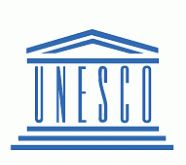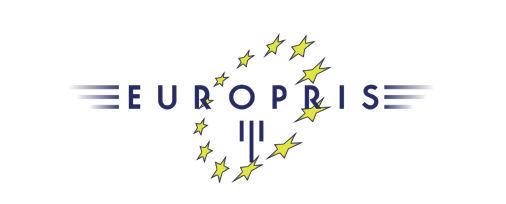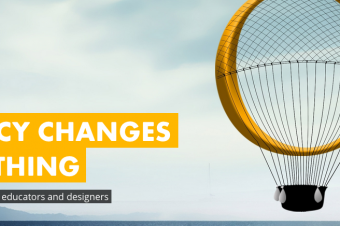SCHOOL AND SOCIETY GOING TOWARDS THE DIGITAL TRANSITION
School and society are taking large steps towards the digital transition. An ambitious goal, which involves different stages, such as connectivity, teacher training, and society itself. New methodologies. The idea was discussed on 20 September by the European Commissioner for Innovation, Research, Culture, Education and Youth, Mariya Ivanova Gabriel, with a group of 10 European teachers, including the Portuguese Paulo Serra and Nuno Duarte, finalists in 2020 and 2021 of the Global Teacher Prize Portugal, respectively.
The importance of involving society as a whole in this endeavor was underlined in an online working meeting, where the issue of the aging of the faculty was also on the table.
In addition to Paulo Serra and Nuno Duarte, the work session was attended by teachers from the Czech Republic, Italy, Slovenia, and Slovakia, also finalists of the Global Teacher Prize. The initiative was promoted by the European Commission and Mentes Empreendedoras, promoter of the Global Teacher Prize Portugal.
The 10 teachers took the opportunity to launch four questions for debate. “We know that lifelong education has a major impact on the well-being of communities and their economic development, as well as contributing to social cohesion and active citizenship. That is why it is important to know how to promote digital access and equipment for everyone, from traditional schools to other contexts, such as education in prisons”, explains Paulo Serra.
Nuno Álvares School teacher, who is the coordinator of the Castelo Branco Prison School team, addressed a sensitive and complex topic. On the one hand, prisoners are deprived of any communication with the outside world, on the other there is training. “We understand the legal issue. But there are alternatives. For example, we can have systems with real environment simulators. In other words, closed virtual environments, only function on an intranet. When these students leave the prison, they will be able to use the same platform with access to the outside”, he says.
In the opinion of Paulo Serra “education in a prison environment is a measure of public safety”, in addition to “increasing the level of employability of prisoners”.
Another of the issues focused on is the need to attract young people to the teaching profession. Today the school has an aging faculty. One of the ideas presented involves a focus on initial teacher training. This question emerges with another that is related to the professional exhaustion of teachers. “It is a matter that is not ours alone. Everyone is concerned about the Burnout syndrome (characterized by physical, emotional, or mental exhaustion that usually arises due to the accumulation of stress at work)”, he adds. “In Europe, we are very concerned about students’ emotional issues. But now the question arises: what about you as a teacher?”, he says.
The introduction of artificial intelligence in schools and the balance between technology and the human factor were also debated. The same happened with the fact of knowing if there is a return on investment in technologies and information in relation to the quality of education.
Adapted from https://ensino.eu/ensino-magazine/atualidade/2021/a-escola-e-a-sociedade-caminham-para-a-transicao-digital/
[PT]
ESCOLA E SOCIEDADE RUMO À TRANSIÇÃO DIGITAL
A escola e a sociedade estão dando grandes passos em direção à transição digital. Uma meta ambiciosa, que envolve diferentes etapas, como conectividade, formação de professores e a própria sociedade. Novas metodologias. A ideia foi discutida a 20 de setembro pela Comissária Europeia para a Inovação, Investigação, Cultura, Educação e Juventude, Mariya Ivanova Gabriel, com um grupo de 10 professores europeus, entre os quais os portugueses Paulo Serra e Nuno Duarte, finalistas em 2020 e 2021 do Global Teacher Prize Portugal, respetivamente.
A importância de envolver a sociedade como um todo nesta empreitada foi sublinhada num encontro de trabalho online, onde também se colocou a questão do envelhecimento do corpo docente.
Para além de Paulo Serra e Nuno Duarte, a sessão de trabalho contou com a presença de professores da República Checa, Itália, Eslovénia e Eslováquia, também finalistas do Global Teacher Prize. A iniciativa foi promovida pela Comissão Europeia e pela Mentes Empreendedoras, promotora do Global Teacher Prize Portugal.
Os 10 professores aproveitaram para lançar quatro questões para debate. “Sabemos que a educação ao longo da vida tem um impacto importante no bem-estar das comunidades e no seu desenvolvimento económico, além de contribuir para a coesão social e a cidadania ativa. Por isso é importante saber promover o acesso digital e equipamentos para todos, desde as escolas tradicionais até outros contextos, como a educação nas prisões”, explica Paulo Serra.
O professor da Escola Nuno Álvares, coordenador da equipa da Escola Prisional de Castelo Branco, abordou um tema delicado e complexo. Por um lado, os presos são privados de qualquer comunicação com o mundo exterior, por outro, existe a formação. “Nós entendemos a questão legal. Mas existem alternativas. Por exemplo, podemos ter sistemas com simuladores de ambiente real. Em outras palavras, ambientes virtuais fechados funcionam apenas em uma intranet. Quando esses alunos saírem da prisão, eles poderão usar a mesma plataforma com acesso ao exterior”, afirma.
Na opinião de Paulo Serra “a educação em ambiente prisional é uma medida de segurança pública”, além de “aumentar o nível de empregabilidade dos presidiários”.
Outra das questões abordadas é a necessidade de atrair os jovens para a profissão docente. Hoje a escola tem um corpo docente envelhecido. Uma das ideias apresentadas envolve o enfoque na formação inicial de professores. Essa questão surge com outra que está relacionada ao esgotamento profissional dos professores. “É um assunto que não é só nosso. Todos se preocupam com a síndrome de Burnout (caracterizada por esgotamento físico, emocional ou mental que geralmente surge pelo acúmulo de estresse no trabalho) ”, completa. “Na Europa, estamos muito preocupados com as questões emocionais dos alunos. Mas agora surge a pergunta: e você como professor? ”, diz.
A introdução da inteligência artificial nas escolas e o equilíbrio entre a tecnologia e o fator humano também foram debatidos. O mesmo aconteceu com o fato de saber se há retorno do investimento em tecnologias e informações em relação à qualidade da educação.
Adaptado de https://ensino.eu/ensino-magazine/atualidade/2021/a-escola-e-a-sociedade-caminham-para-a-transicao-digital/
[GE]
SCHULE UND GESELLSCHAFT AUF DEM DIGITALEN WANDEL
Schule und Gesellschaft machen große Schritte in Richtung des digitalen Wandels. Ein ehrgeiziges Ziel, das verschiedene Phasen umfasst, wie Konnektivität, Lehrerausbildung und die Gesellschaft selbst. Neue Methoden. Die Idee wurde am 20. September von der EU-Kommissarin für Innovation, Forschung, Kultur, Bildung und Jugend, Mariya Ivanova Gabriel, mit einer Gruppe von 10 europäischen Lehrern diskutiert, darunter die Portugiesen Paulo Serra und Nuno Duarte, Finalisten 2020 und 2021 der Globaler Lehrerpreis Portugal bzw.
Wie wichtig es ist, die Gesellschaft als Ganzes in dieses Bestreben einzubeziehen, wurde in einem Online-Arbeitstreffen unterstrichen, bei dem auch das Thema Alterung der Fakultät auf dem Tisch stand.
An der Arbeitssitzung nahmen neben Paulo Serra und Nuno Duarte auch Lehrer aus Tschechien, Italien, Slowenien und der Slowakei teil, ebenfalls Finalisten des Global Teacher Prize. Die Initiative wurde von der Europäischen Kommission und Mentes Empreendedoras, dem Förderer des Global Teacher Prize Portugal, gefördert.
Die 10 Lehrer nutzten die Gelegenheit, um vier Fragen zur Debatte zu stellen. „Wir wissen, dass lebenslanges Lernen einen großen Einfluss auf das Wohlergehen von Gemeinschaften und ihre wirtschaftliche Entwicklung hat und zum sozialen Zusammenhalt und zur aktiven Bürgerschaft beiträgt. Deshalb ist es wichtig zu wissen, wie man den digitalen Zugang und die digitale Ausstattung für alle fördern kann, von traditionellen Schulen bis hin zu anderen Kontexten, wie zum Beispiel Bildung in Gefängnissen“, erklärt Paulo Serra.
Der Lehrer der Schule Nuno Álvares, der Koordinator des Teams der Gefängnisschule Castelo Branco ist, sprach ein heikles und komplexes Thema an. Einerseits wird den Gefangenen jegliche Kommunikation mit der Außenwelt entzogen, andererseits gibt es Schulungen. „Wir verstehen die Rechtsfrage. Aber es gibt Alternativen. Beispielsweise können wir Systeme mit realen Umgebungssimulatoren haben. Mit anderen Worten, geschlossene virtuelle Umgebungen funktionieren nur in einem Intranet. Wenn diese Studenten das Gefängnis verlassen, können sie dieselbe Plattform mit Zugang nach außen nutzen“, sagt er.
Nach Ansicht von Paulo Serra ist „Bildung in einer Gefängnisumgebung ein Maß für die öffentliche Sicherheit“, zusätzlich zur „Erhöhung der Beschäftigungsfähigkeit der Gefangenen“.
Ein weiterer Schwerpunkt ist die Notwendigkeit, junge Menschen für den Lehrerberuf zu gewinnen. Heute hat die Schule eine alternde Fakultät. Eine der vorgestellten Ideen beinhaltet einen Fokus auf die Lehrererstausbildung. Diese Frage taucht mit einer anderen auf, die mit der beruflichen Erschöpfung der Lehrer zusammenhängt. „Es ist eine Angelegenheit, die nicht unsere allein ist. Jeder ist besorgt über das Burnout-Syndrom (gekennzeichnet durch körperliche, emotionale oder geistige Erschöpfung, die normalerweise durch die Ansammlung von Stress am Arbeitsplatz entsteht)“, fügt er hinzu. „In Europa sind wir sehr besorgt über die emotionalen Probleme der Schüler. Aber jetzt stellt sich die Frage: Was ist mit Ihnen als Lehrer?“, sagt er.
Auch die Einführung von Künstlicher Intelligenz in Schulen und die Balance zwischen Technologie und dem Faktor Mensch wurden diskutiert. Dasselbe geschah mit der Tatsache, dass sich Investitionen in Technologien und Informationen in Bezug auf die Qualität der Bildung rentieren.
Angepasst von https://ensino.eu/ensino-magazine/atualidade/2021/a-escola-e-a-sociedade-caminham-para-a-transicao-digital/
[IT]
SCUOLA E SOCIETÀ VERSO LA TRANSIZIONE DIGITALE
La scuola e la società stanno compiendo grandi passi verso la transizione digitale. Un obiettivo ambizioso, che coinvolge diverse fasi, come la connettività, la formazione degli insegnanti e la società stessa. Nuove metodologie. L’idea è stata discussa il 20 settembre dal commissario europeo per l’Innovazione, la ricerca, la cultura, l’istruzione e la gioventù, Mariya Ivanova Gabriel, con un gruppo di 10 insegnanti europei, tra cui i portoghesi Paulo Serra e Nuno Duarte, finalisti nel 2020 e 2021 del Premio Global Teacher Portugal, rispettivamente.
L’importanza di coinvolgere l’intera società in questa impresa è stata sottolineata in un incontro di lavoro online, dove è stato anche affrontato il tema dell’invecchiamento della facoltà.
Alla sessione di lavoro hanno partecipato, oltre a Paulo Serra e Nuno Duarte, docenti provenienti da Repubblica Ceca, Italia, Slovenia e Slovacchia, anch’essi finalisti del Global Teacher Prize. L’iniziativa è stata promossa dalla Commissione Europea e da Mentes Empreendedoras, promotrice del Global Teacher Prize Portugal.
I 10 insegnanti hanno colto l’occasione per lanciare quattro domande di dibattito. “Sappiamo che l’educazione permanente ha un forte impatto sul benessere delle comunità e sul loro sviluppo economico, oltre a contribuire alla coesione sociale e alla cittadinanza attiva. Per questo è importante saper promuovere l’accesso e le attrezzature digitali per tutti, dalle scuole tradizionali ad altri contesti, come l’educazione nelle carceri”, spiega Paulo Serra.
L’insegnante della scuola Nuno Álvares, che è il coordinatore del team della scuola carceraria di Castelo Branco, ha affrontato un argomento delicato e complesso. Da un lato i detenuti sono privati di ogni comunicazione con il mondo esterno, dall’altro c’è la formazione. “Comprendiamo la questione legale. Ma ci sono alternative. Ad esempio, possiamo avere sistemi con simulatori di ambienti reali. In altre parole, gli ambienti virtuali chiusi funzionano solo su una intranet. Quando questi studenti lasceranno il carcere, potranno utilizzare la stessa piattaforma con accesso all’esterno”, afferma.
Per Paulo Serra “l’educazione in ambiente carcerario è una misura di sicurezza pubblica”, oltre che “aumentare il livello di occupabilità dei detenuti”.
Un altro dei temi su cui si è concentrata è la necessità di attrarre i giovani alla professione di insegnante. Oggi la scuola ha una facoltà di invecchiamento. Una delle idee presentate prevede un focus sulla formazione iniziale degli insegnanti. Questa domanda emerge con un’altra che è legata all’esaurimento professionale degli insegnanti. “È una questione che non è solo nostra. Tutti sono preoccupati per la sindrome del burnout (caratterizzata da esaurimento fisico, emotivo o mentale che di solito insorge a causa dell’accumulo di stress sul lavoro)”, aggiunge. “In Europa, siamo molto preoccupati per i problemi emotivi degli studenti. Ma ora sorge la domanda: e tu come insegnante?”, dice.
Si è discusso anche dell’introduzione dell’intelligenza artificiale nelle scuole e dell’equilibrio tra tecnologia e fattore umano. Lo stesso è accaduto con il fatto di sapere se c’è un ritorno sull’investimento in tecnologie e informazioni in relazione alla qualità dell’istruzione.
Adattato da https://ensino.eu/ensino-magazine/atualidade/2021/a-escola-e-a-sociedade-caminham-para-a-transicao-digital/



